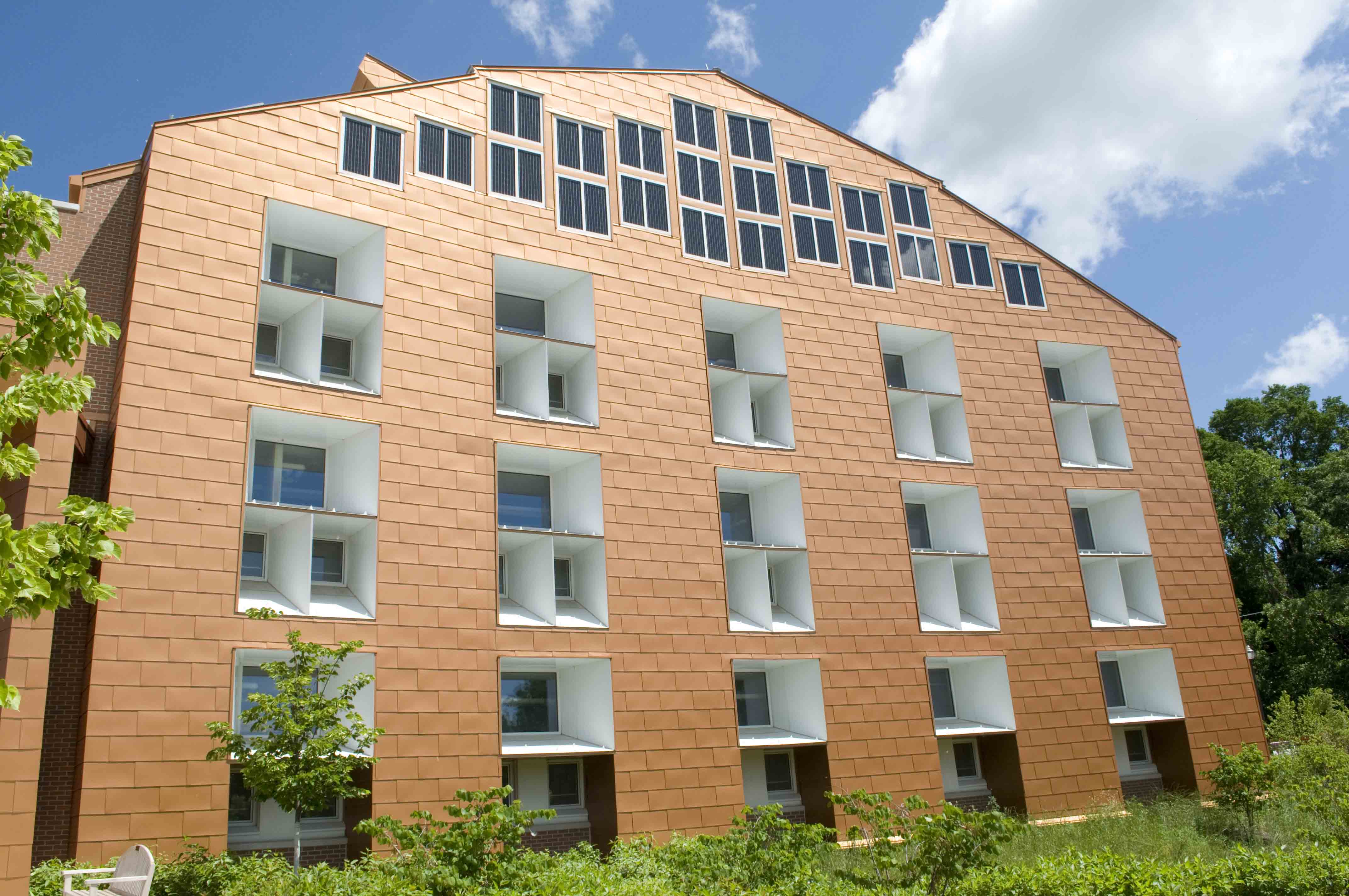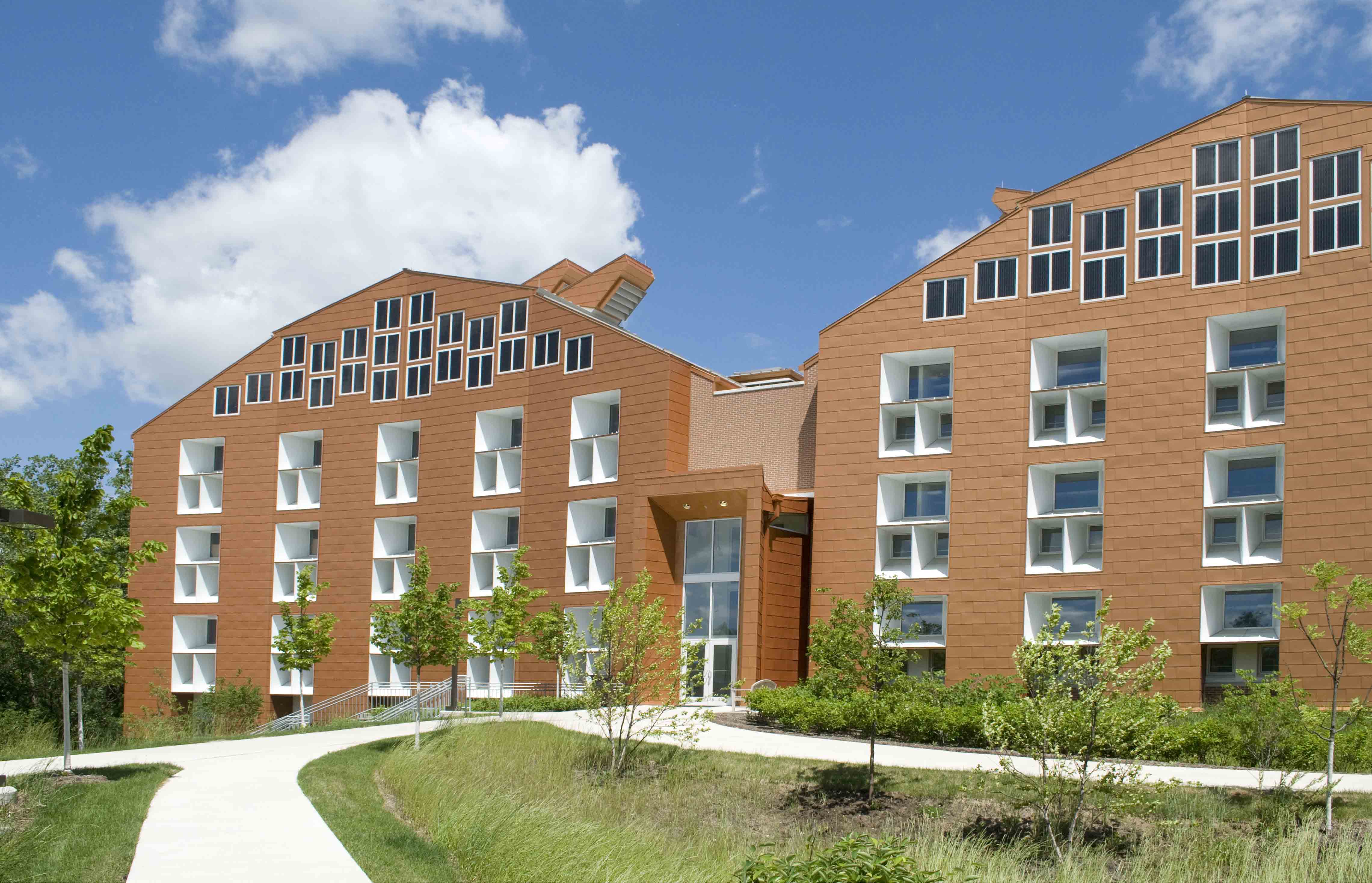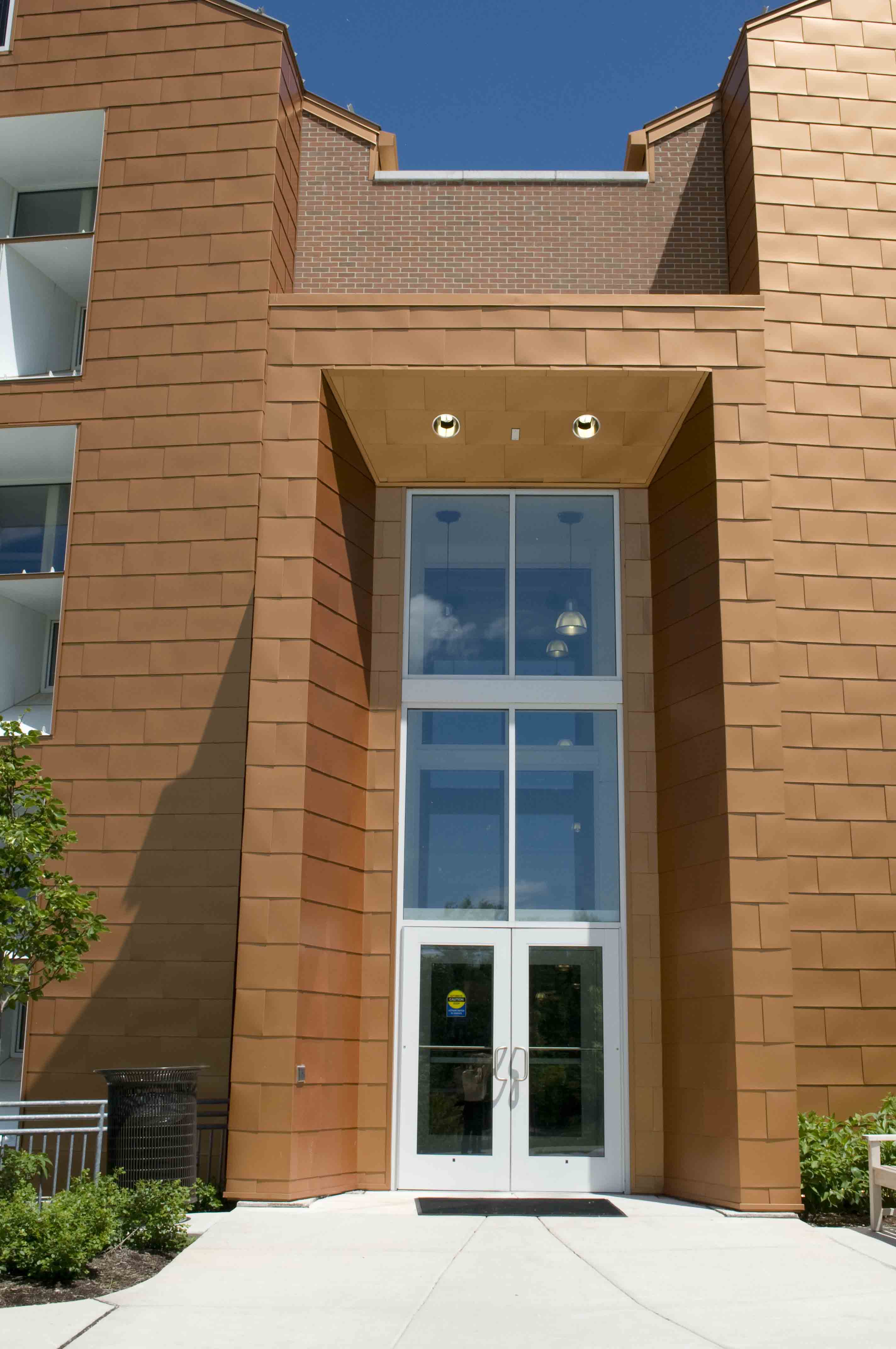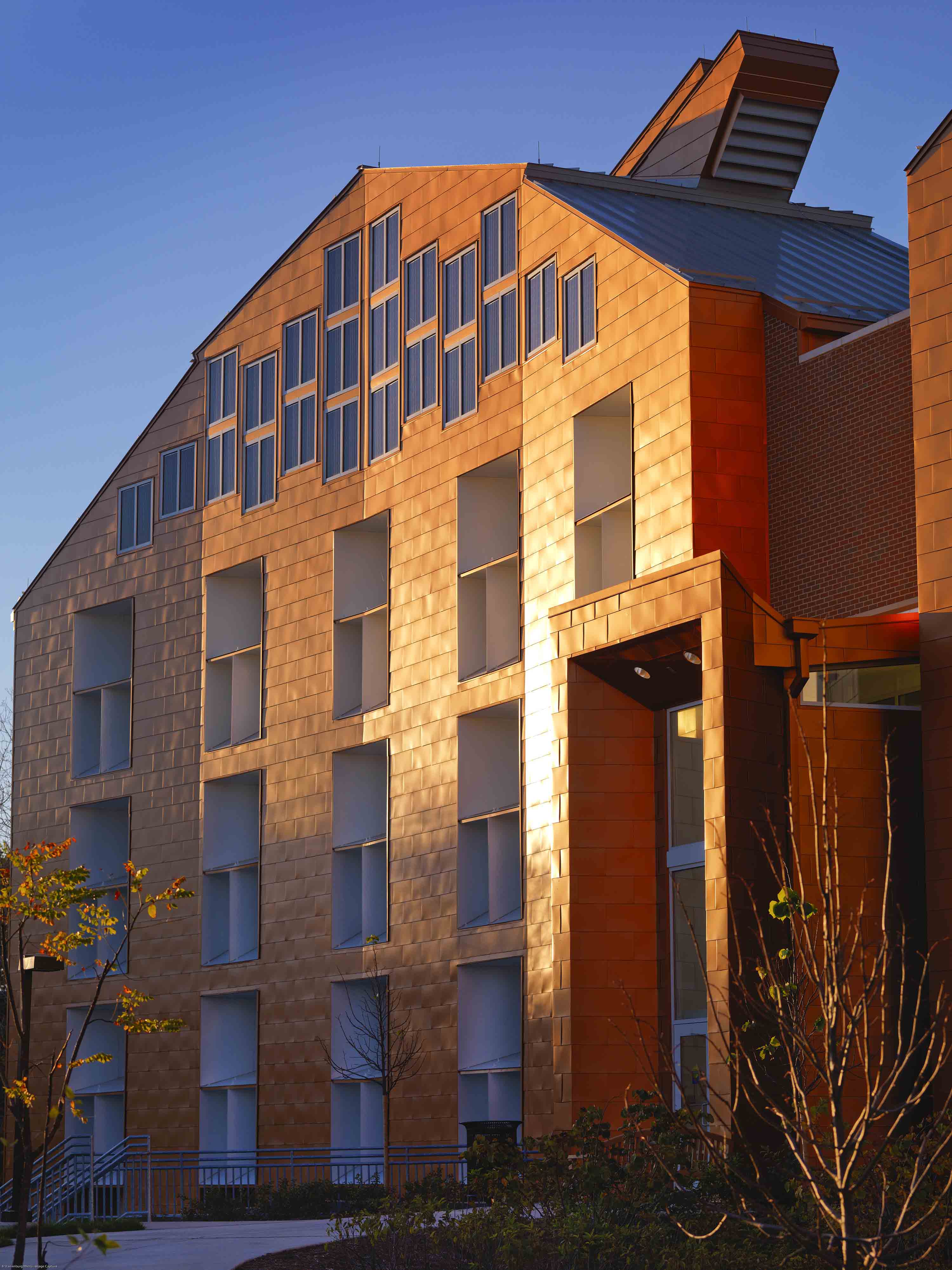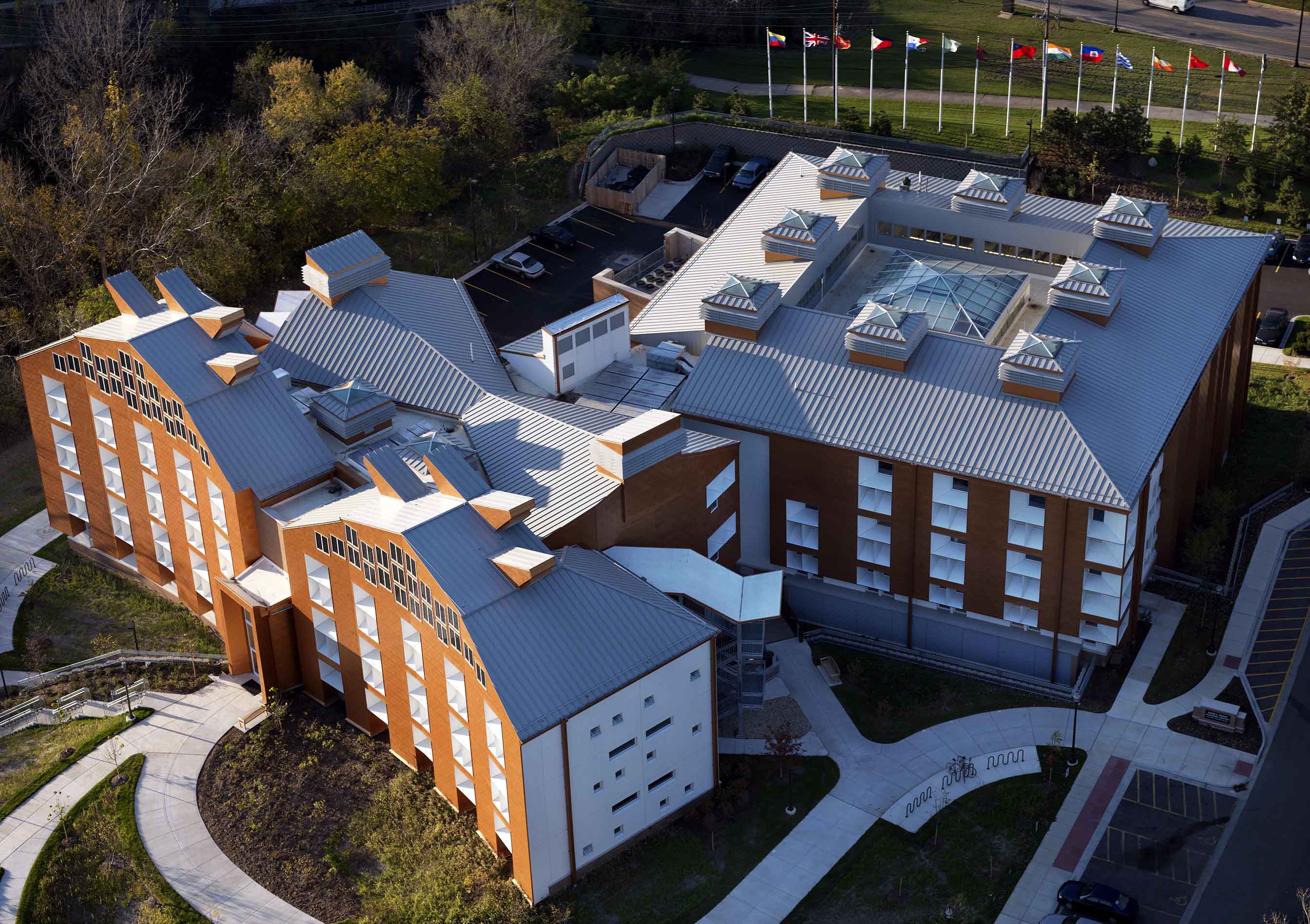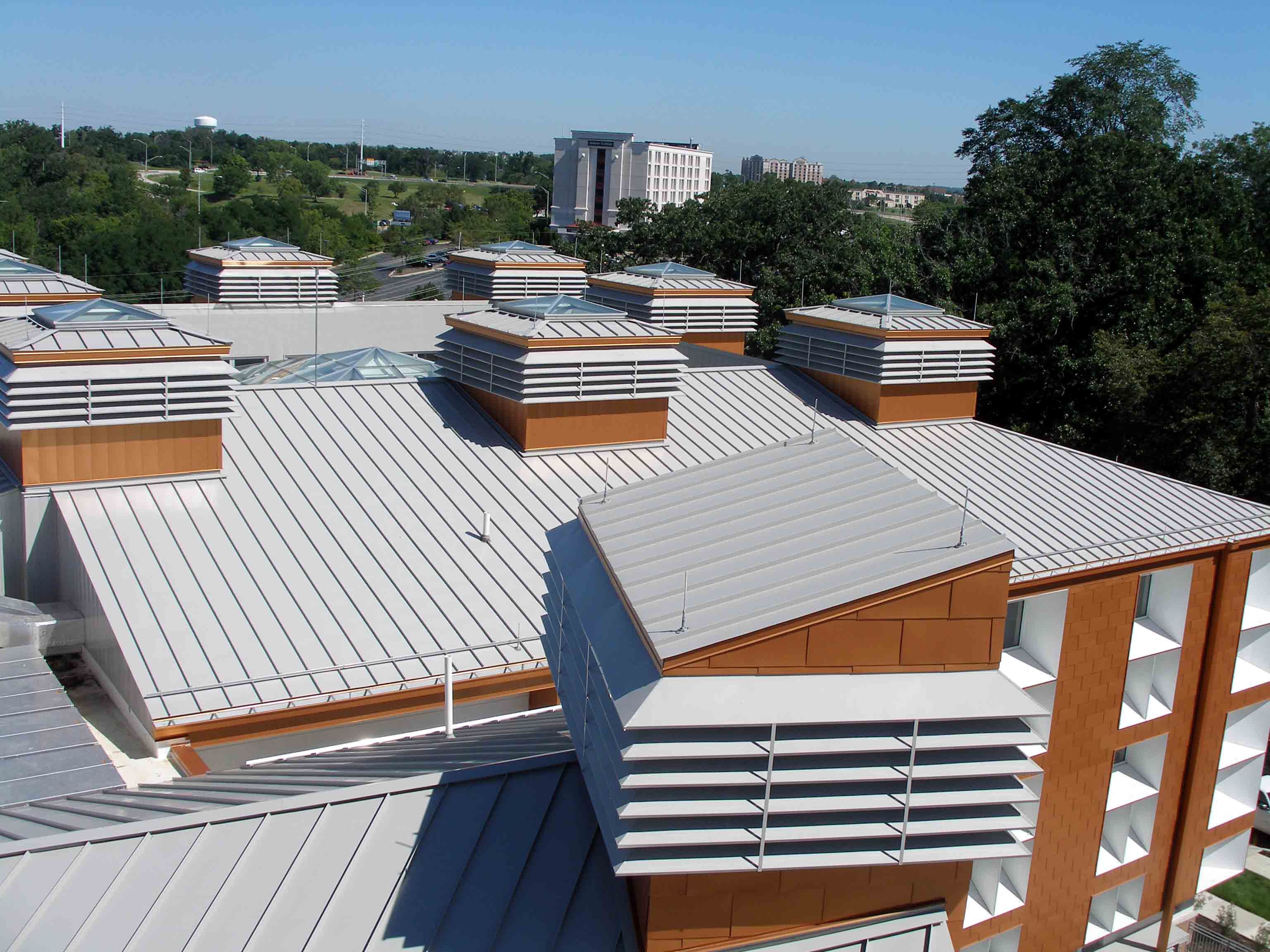Judson University in Elgin, Ill., recently experienced some enviable challenges: continuous growth in its fledging architectural and design program had led to less classroom, meeting and office space, and the university had also outgrown its current library.
School officials came together and concluded that a new facility was needed, with one major priority—the building had to be as sustainable as possible. Judson conducted an outside competition to select the best design to meet its specifications. In doing so, the university was able to solve its unique design challenges and give its architecture students the opportunity to witness a new project from start to finish, right on campus.
Short & Associates of London was selected as the winning architect for its unique metal roof and wall panel design capabilities, its experience in reducing solar consumption and emissions, and its expertise in utilizing natural ventilation systems to increase sustainability. To create the building’s custom-fabricated wall panels and overall exterior design, Short & Associates selected Wiesbrook Sheet Metal (Elgin, Ill.) to collaborate with metal wall panel manufacturer McElroy Metal (Shreveport, La.).
Because using true copper panels for the project would have posed the risk of theft and would have increased project costs, McElroy Metal provided over 104,000 sf of 4’ x 10’ flat metal sheets with Valspar’s signature Fluropon Copper Penny coating for the wall and trim, as well as over 24,700 sf of Medallion-Lok roof panels with Valspar’s Fluropon Ash Gray coating. Valspar’s Fluropon coatings were selected not only for their durability and gloss retention, but for their high solar reflectivity and emissivity. The coatings played a key role in creating a cool metal roof, reducing the building’s energy consumption and heat island effect.
In addition to the cool metal roof, other sustainability features of the new building include exterior walls that sit four feet from the concrete structure to utilize the natural tendency of warm air to rise, creating a vacuum that draws cool air in from the bottom, circulates it and exhausts it through rooftop ventilators.
A basic mechanical heating and cooling system provides essential temperature control during the months when the natural mode isn’t possible. The building also features an integrated photovoltaic system to generate electricity, as well as landscape features that provide storm water control and increased biodiversity.
The completed four-story, 88,000-sf building is divided to serve three functions, with classroom space, academic offices/studios, and the library wing. The building areas are joined together by a bowtie-shaped link that is designed to provide additional classroom space and a gallery.
The project required six months from the mock-up until the actual installation of the Valspar Fluropon-coated wall and roof panels began, and 15 months for completion. The final result was the first truly “green” college building in the United States—achieving a Gold LEED Rating by the U.S. Green Building Council.
For more information on Valspar, visit www.valsparcoilextrusion.com.
Related Stories
Adaptive Reuse | Oct 22, 2024
Adaptive reuse project transforms 1840s-era mill building into rental housing
A recently opened multifamily property in Lawrence, Mass., is an adaptive reuse of an 1840s-era mill building. Stone Mill Lofts is one of the first all-electric mixed-income multifamily properties in Massachusetts. The all-electric building meets ambitious modern energy codes and stringent National Park Service historic preservation guidelines.
MFPRO+ News | Oct 22, 2024
Project financing tempers robust demand for multifamily housing
AEC Giants with multifamily practices report that the sector has been struggling over the past year, despite the high demand for housing, especially affordable products.
Performing Arts Centers | Oct 21, 2024
The New Jersey Performing Arts Center breaks ground on $336 million redevelopment of its 12-acre campus
In Newark, N.J., the New Jersey Performing Arts Center (NJPAC) has broken grown on the three-year, $336 million redevelopment of its 12-acre campus. The project will provide downtown Newark 350 mixed-income residential units, along with shops, restaurants, outdoor gathering spaces, and an education and community center with professional rehearsal spaces.
Office Buildings | Oct 21, 2024
3 surprises impacting the return to the office
This blog series exploring Gensler's Workplace Survey shows the top three surprises uncovered in the return to the office.
Healthcare Facilities | Oct 18, 2024
7 design lessons for future-proofing academic medical centers
HOK’s Paul Strohm and Scott Rawlings and Indiana University Health’s Jim Mladucky share strategies for planning and designing academic medical centers that remain impactful for generations to come.
Sports and Recreational Facilities | Oct 17, 2024
In the NIL era, colleges and universities are stepping up their sports facilities game
NIL policies have raised expectations among student-athletes about the quality of sports training and performing facilities, in ways that present new opportunities for AEC firms.
Codes and Standards | Oct 17, 2024
Austin, Texas, adopts AI-driven building permit software
After a successful pilot program, Austin has adopted AI-driven building permit software to speed up the building permitting process.
Resiliency | Oct 17, 2024
U.S. is reducing floodplain development in most areas
The perception that the U.S. has not been able to curb development in flood-prone areas is mostly inaccurate, according to new research from climate adaptation experts. A national survey of floodplain development between 2001 and 2019 found that fewer structures were built in floodplains than might be expected if cities were building at random.
Seismic Design | Oct 17, 2024
Calif. governor signs limited extension to hospital seismic retrofit mandate
Some California hospitals will have three additional years to comply with the state’s seismic retrofit mandate, after Gov. Gavin Newsom signed a bill extending the 2030 deadline.
MFPRO+ News | Oct 16, 2024
One-third of young adults say hurricanes like Helene and Milton will impact where they choose to live
Nearly one-third of U.S. residents between 18 and 34 years old say they are reconsidering where they want to move after seeing the damage wrought by Hurricane Helene, according to a Redfin report. About 15% of those over age 35 echoed their younger cohort’s sentiment.


